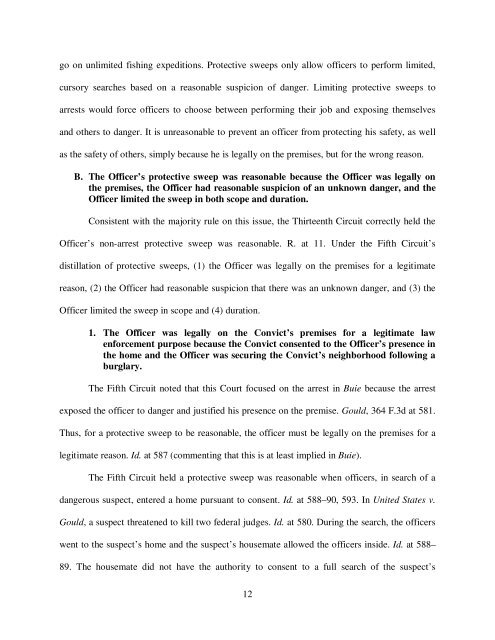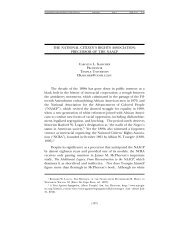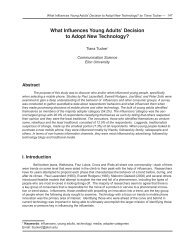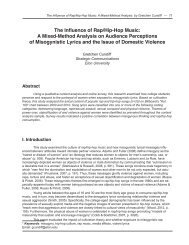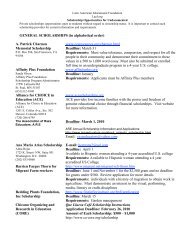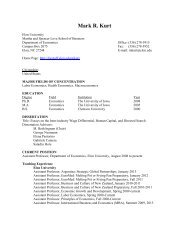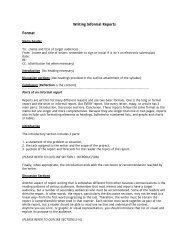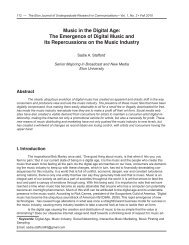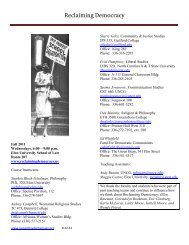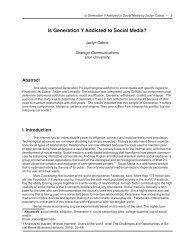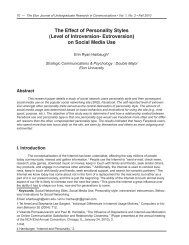In the Supreme Court of the United States In the Supreme Court of ...
In the Supreme Court of the United States In the Supreme Court of ...
In the Supreme Court of the United States In the Supreme Court of ...
Create successful ePaper yourself
Turn your PDF publications into a flip-book with our unique Google optimized e-Paper software.
go on unlimited fishing expeditions. Protective sweeps only allow <strong>of</strong>ficers to perform limited,<br />
cursory searches based on a reasonable suspicion <strong>of</strong> danger. Limiting protective sweeps to<br />
arrests would force <strong>of</strong>ficers to choose between performing <strong>the</strong>ir job and exposing <strong>the</strong>mselves<br />
and o<strong>the</strong>rs to danger. It is unreasonable to prevent an <strong>of</strong>ficer from protecting his safety, as well<br />
as <strong>the</strong> safety <strong>of</strong> o<strong>the</strong>rs, simply because he is legally on <strong>the</strong> premises, but for <strong>the</strong> wrong reason.<br />
B. The Officer’s protective sweep was reasonable because <strong>the</strong> Officer was legally on<br />
<strong>the</strong> premises, <strong>the</strong> Officer had reasonable suspicion <strong>of</strong> an unknown danger, and <strong>the</strong><br />
Officer limited <strong>the</strong> sweep in both scope and duration.<br />
Consistent with <strong>the</strong> majority rule on this issue, <strong>the</strong> Thirteenth Circuit correctly held <strong>the</strong><br />
Officer’s non-arrest protective sweep was reasonable. R. at 11. Under <strong>the</strong> Fifth Circuit’s<br />
distillation <strong>of</strong> protective sweeps, (1) <strong>the</strong> Officer was legally on <strong>the</strong> premises for a legitimate<br />
reason, (2) <strong>the</strong> Officer had reasonable suspicion that <strong>the</strong>re was an unknown danger, and (3) <strong>the</strong><br />
Officer limited <strong>the</strong> sweep in scope and (4) duration.<br />
1. The Officer was legally on <strong>the</strong> Convict’s premises for a legitimate law<br />
enforcement purpose because <strong>the</strong> Convict consented to <strong>the</strong> Officer’s presence in<br />
<strong>the</strong> home and <strong>the</strong> Officer was securing <strong>the</strong> Convict’s neighborhood following a<br />
burglary.<br />
The Fifth Circuit noted that this <strong>Court</strong> focused on <strong>the</strong> arrest in Buie because <strong>the</strong> arrest<br />
exposed <strong>the</strong> <strong>of</strong>ficer to danger and justified his presence on <strong>the</strong> premise. Gould, 364 F.3d at 581.<br />
Thus, for a protective sweep to be reasonable, <strong>the</strong> <strong>of</strong>ficer must be legally on <strong>the</strong> premises for a<br />
legitimate reason. Id. at 587 (commenting that this is at least implied in Buie).<br />
The Fifth Circuit held a protective sweep was reasonable when <strong>of</strong>ficers, in search <strong>of</strong> a<br />
dangerous suspect, entered a home pursuant to consent. Id. at 588–90, 593. <strong>In</strong> <strong>United</strong> <strong>States</strong> v.<br />
Gould, a suspect threatened to kill two federal judges. Id. at 580. During <strong>the</strong> search, <strong>the</strong> <strong>of</strong>ficers<br />
went to <strong>the</strong> suspect’s home and <strong>the</strong> suspect’s housemate allowed <strong>the</strong> <strong>of</strong>ficers inside. Id. at 588–<br />
89. The housemate did not have <strong>the</strong> authority to consent to a full search <strong>of</strong> <strong>the</strong> suspect’s<br />
12


